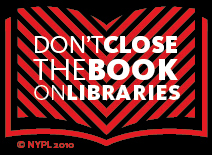I Don't Like People
Amazing, but true. As a general rule, I am anti-social, misanthropic and live like a hermit. I stay in my (roommate-free) dorm room, and most of my associations are with people on Twitter (not Facebook, anymore). I am not a people person, a social butterfly or the life of the party.
I adore watching people, eavesdropping and generally being nosy, but put me in a group, and I clam up almost immediately.
However, it seems that I need to be uncomfortable to write. For whatever reason, it really helps me to be involved in a group where I am forced to write creatively and actually share my work. I've started feeling creative again, which is not something that writing for Demand Studios inspires (that just keeps money in the bank).
Group Work
Normally, I don't like group work. I find that working with other people generally loads responsibility onto one person (often me, because, let's face, I don't like failing). Workshops, however, are totally different. Everyone is responsible for their own work, and just listens to and comments on everyone else's. That's a great environment.
As much as I love Twitter (and trust me, I love Twitter), it's not the same environment as a workshop. The #amwriting hashtag is excellent for inspiration and connecting with other writers, but 140 characters doesn't give you much room for writing creatively, unless you write in haiku (which I've seen, and which is genuinely pretty neat).
Why Workshops are Great
Workshops are important for writers (and readers) for a couple of reasons.
- They force you to share your work, often out loud. It's impossible to overstate how helpful it can be to read your own work out loud, or hear someone else read it. The cadence in your head might not translate when read aloud -your syntax might be off, or your voice might not come through. Reading out loud helps you find rough spots in your writing.
- Working with other writers helps you develop your own writing. If you only ever read what you write or read published writers, you're going to notice the dichotomy between your rough drafts and a polished, published manuscript, and it will make you feel bad eventually -even if you don't realize it. Working with other writers helps you keep a good perspective on your own work. Everyone is constantly developing, and seeing other writers work through their frustration can help you work through yours.
- It's fun. Writers are solitary beasts by nature, and it's really nice to go to an environment where you're surrounded by similar beasts. Even if you contribute little to chit-chat or non-writing discussion, it's just enjoyable to be around people with the same inky passion.
- You can steal other people's ideas. Seriously. All great art is stolen, used and made new. Originality comes from putting your seal on something, not coming up with something no one has thought of before (because someone, somewhere has already thought of it).
This can be hard, if not impossible. I'm lucky enough to be in a university setting and engaged in a major where I am required to take at least 3 workshops (one fiction, one non-fiction and one poetry). There are also on-campus writing groups and other writers I can meet up with when I get into a rut.
In a local setting, it can be really challenging to locate a group unless you know someone who's in it. Your best bet is to hit up the local library and any small indie coffee shops that may be in your area. Ask the librarians and baristas if there are any writing groups that meet and when. Check group postings on library and coffee shop bulletin boards for notices about groups.
If all else fails, start your own! Advertise it on Twitter, with your library and indie coffee shops, and get your friends and strangers involved. Starting your own group gives you a great amount of control over the direction and rules of the group, whatever they may be, which is often a good thing to have.


No comments:
Post a Comment